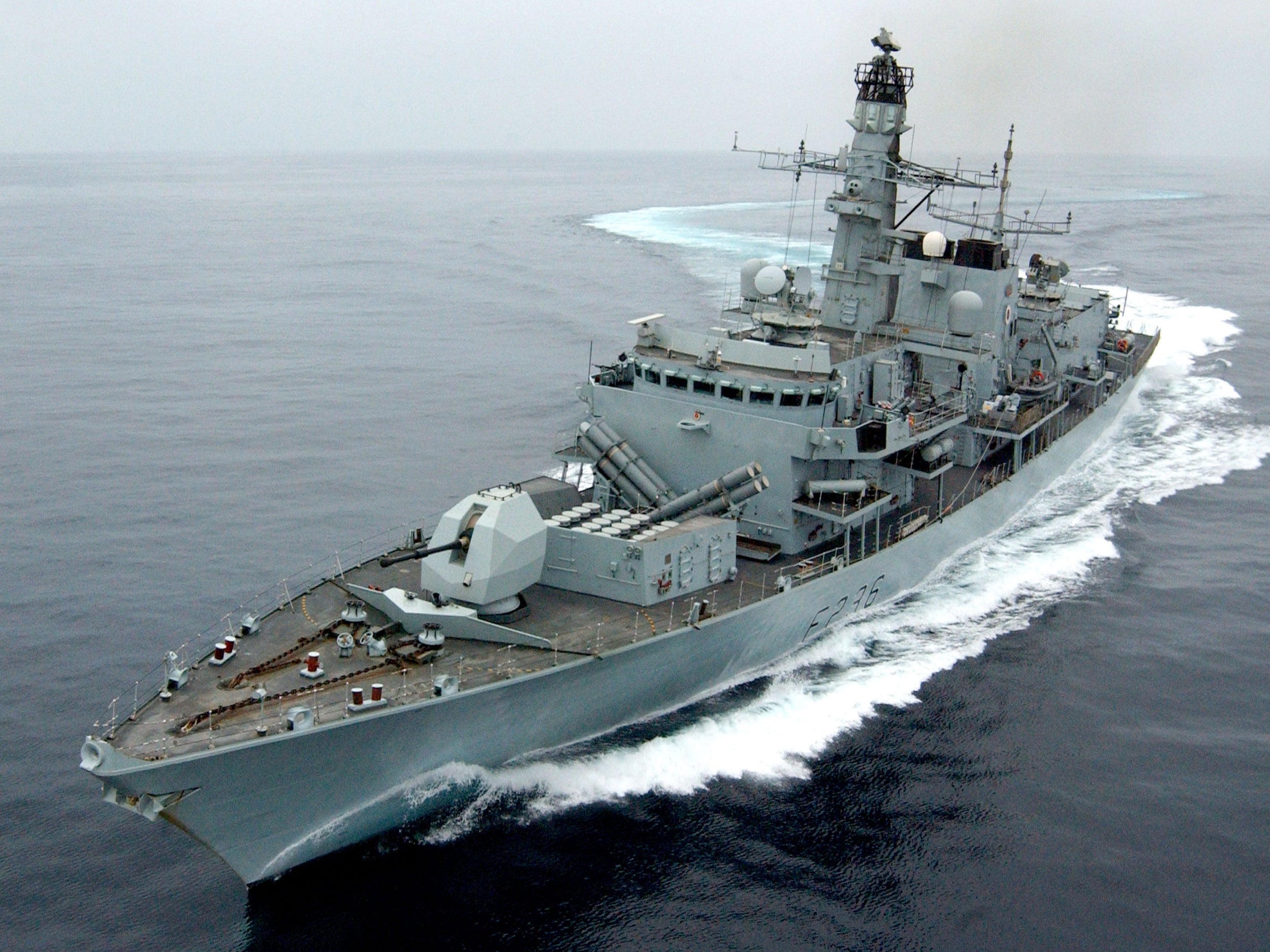Royal Navy seizes Iranian missiles from smugglers in speedboats
The weapons intercepted in the first-of-its-kind operation were allegedly being transported to Houthi rebels fighting in Yemen

Your support helps us to tell the story
From reproductive rights to climate change to Big Tech, The Independent is on the ground when the story is developing. Whether it's investigating the financials of Elon Musk's pro-Trump PAC or producing our latest documentary, 'The A Word', which shines a light on the American women fighting for reproductive rights, we know how important it is to parse out the facts from the messaging.
At such a critical moment in US history, we need reporters on the ground. Your donation allows us to keep sending journalists to speak to both sides of the story.
The Independent is trusted by Americans across the entire political spectrum. And unlike many other quality news outlets, we choose not to lock Americans out of our reporting and analysis with paywalls. We believe quality journalism should be available to everyone, paid for by those who can afford it.
Your support makes all the difference.The Royal Navy has seized Iranian weapons – including missiles – allegedly on their way to Houthi forces in Yemen, after speedboats suspected of being on smuggling runs were intercepted in the Gulf.
The Ministry of Defence (MoD) in London said that the operation by HMS Montrose was the “first time a British Naval warship has interdicted a vessel carrying such sophisticated weapons from Iran”. It stated the operation was undertaken to enforce compliance with UN Security Council resolutions aimed at curbing supplies of arms fueling the Yemen conflict.
The seized weapons included surface-to-air missiles and engines for the 351 cruise missile which has a range of 1,000km. They are “regularly used by the Houthis to strike targets in the Kingdom of Saudi Arabia and was also the type of weapon used to attack Abu Dhabi on 17 January 2022, which killed three civilians,” the MoD said.
There was no immediate reaction from the Iranian government about the seizure. It would, however, be unusual for Tehran not to respond to such military action by a foreign power off its coastline.
Diplomatic tensions between Iran and Britain have risen in the last few days after the state-run Fars news agency in Tehran reported that the Islamic Revolutionary Guard Corps (IRGC) had “identified and arrested diplomats from foreign embassies who were spying in Iran” including the British deputy ambassador Giles Whitaker.
The UK Foreign Office dismissed the reports of the arrest as “completely false”. Simon Shercliff, the British ambassador in Tehran, tweeted: “These reports that our deputy ambassador is currently detained are very interesting ... He actually left Iran last December, at the end of his posting.”
The others arrested, according to the Iranian report, were: “Maciej Walczak, head of the microbiology department at the Nicolaus Copernicus University in Poland. This university is linked to the Zionist regime [referring to Israel]" and “Ronald, the spouse of the Austrian embassy’s cultural adviser”.
Talks between international powers and Iran over the country’s nuclear programme reached an impasse four months ago. More recently, indirect talks hosted by Qatar last week ended without a breakthrough and the US has announced a fresh round of sanctions targeting Iranian petroleum and petrochemical sales.
The seizure of the Iranian weapons occurred after helicopters from the HMS Montrose spotted the speedboats “carrying suspicious cargo” leaving the Iranian coast during a routine patrol. The vessels were stopped and searched by Royal Marines deployed from the Type 23 frigate on inflatable dinghies.
“The seized packages were returned to the UK for technical analysis which revealed that the shipment contained multiple rocket engines for the Iranian produced 351 land attack cruise missile and a batch of 358 surface-to-air missiles”, the Royal Navy said – with the seizure having taken place in January and February this year.
James Heappey, the minister for armed forces said: “The UK is committed to upholding international law, from standing up to aggression in Europe to interdicting illegal shipments of weaponry that perpetuates instability in the Middle East. The UK will continue to work in support of an enduring peace in Yemen and is committed to international maritime security so that commercial shipping can transit safely without threat of disruption.”
The Commanding Officer of HMS Montrose, Commander Claire Thompson, added: “These interdictions demonstrate the professionalism and commitment of the Royal Navy to promoting stability in this region. I am extremely proud of my crew – the Royal Navy sailors, aircrew and Royal Marines involved in these endeavours and the significant positive impact they are having in maintaining the international rules-based order at sea.”
Subscribe to Independent Premium to bookmark this article
Want to bookmark your favourite articles and stories to read or reference later? Start your Independent Premium subscription today.
Join our commenting forum
Join thought-provoking conversations, follow other Independent readers and see their replies
Comments